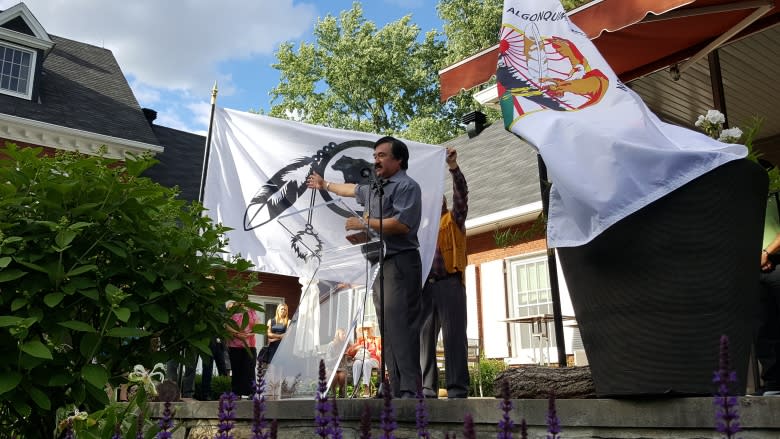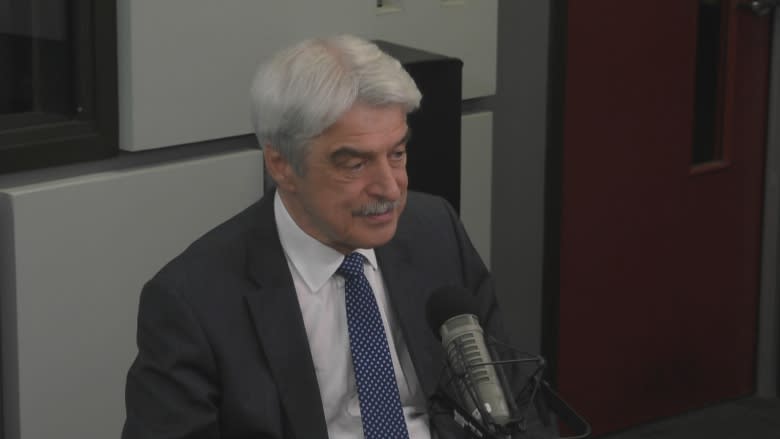German ambassador raises Algonquin flags in 'sign of friendship'
The German ambassador's residence in Ottawa has updated its decor to recognize the traditional territory of the Algonquin people on which the home sits.
The flags of the Algonquin-Anishinabeg Nation and the Algonquins of Pikwakanagan were installed in a special ceremony Tuesday evening, and are now a permanent fixture inside the Rockcliffe residence.
German Ambassador Werner Wnendt says the gesture is "to remind everybody who is visiting us — and there are many people, of course — that this is where we are. This is the territory of the Algonquin people."
Wnendt was inspired to honour area First Nations as he became familiar with their history and culture after he arrived in Canada to take his post as ambassador.
"I came to Canada, to this great country with its multicultural population, around five years ago, and have been reaching out — that's what an ambassador does, of course — to people," Wnendt told host Hallie Cotnam on CBC Radio's Ottawa Morning Wednesday.
"I have met members of the First Nations, and I have been at many events where I heard the ... ministers saying that they are grateful that they are on the Algonquin territory, or in other provinces of course, on the territory of other First Nations."
A 'sign of friendship'
He reached out to local Algonquin elders and leaders for their blessing, and some, including Pikwakanagan Chief Kirby Whiteduck, were on hand for Tuesday's ceremony, which included drumming, dancing and Algonquin food.
Wnendt wanted to unveil the flags to coincide with Canada's 150th anniversary to acknowledge First Nations' contributions to the the country and their history, which predates Confederation.
He calls it a "sign of friendship" as one of his last acts as ambassador before his five-year term wraps up next week.
"This is not a legal act in an international law sense. It's a human gesture we wanted to have," said Wnendt,
"We wanted to show our sympathy, our heartfelt sympathy with these people. And we admire the First Nations, and we are very grateful that we can live here."



